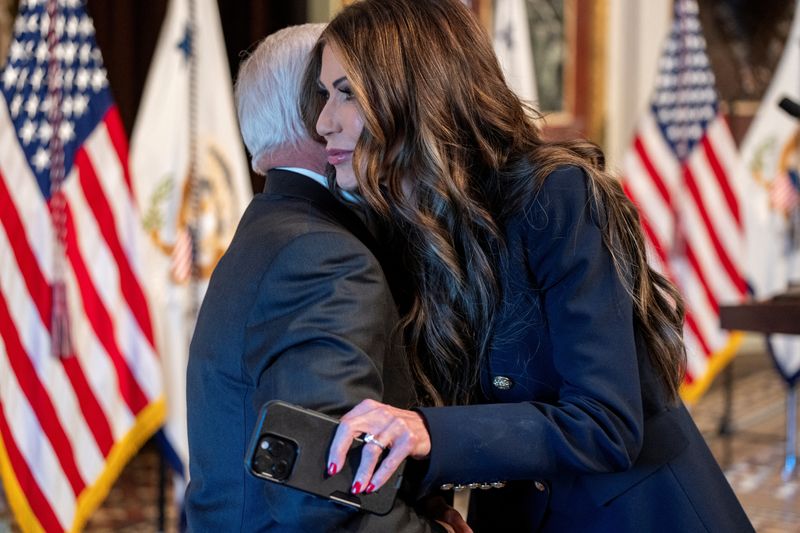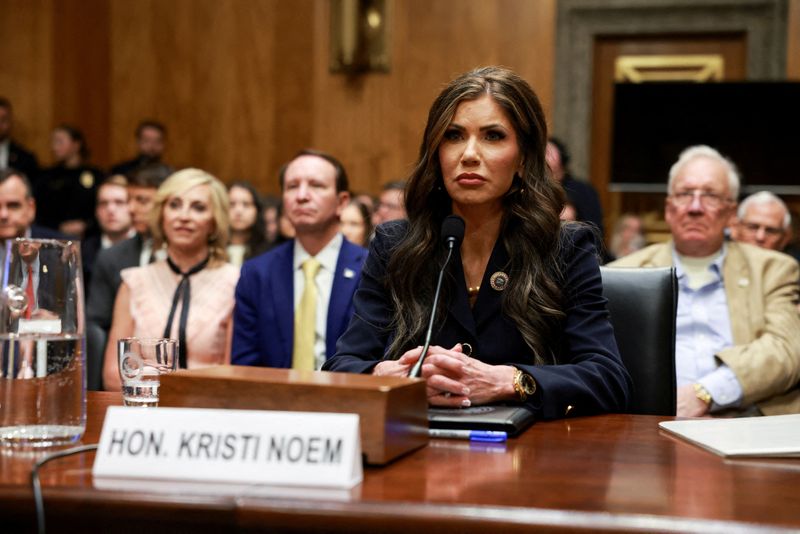By Ted Hesson
WASHINGTON - Kristi Noem was confirmed by the U.S. Senate as President Donald Trump's Homeland Security secretary on Saturday, putting into position a key member of the Republican's Cabinet as he launches a wide-ranging immigration crackdown.
Noem, who was governor of South Dakota, shares Trump's hardline immigration views and called illegal immigration an "invasion" during a confirmation hearing earlier this month.
She was confirmed by a vote of 59 to 34 in the Republican-led Senate.
Trump recaptured the White House promising to deport record numbers of immigrants in the U.S. illegally, criticizing Democratic former President Joe Biden for high levels of illegal immigration during his presidency.
Trump issued an array of executive orders after taking office on Jan. 20 that aim to tighten border security and power his deportation drive, and has rolled out a raft of restrictive policies.
Noem will take over the 260,000-employee U.S. Department of Homeland Security, which oversees border security, deportations and legal immigration paperwork, as well as emergency response, cybersecurity and the U.S. Coast Guard and Secret Service.
While she served as governor of a state closer to Canada than Mexico, Noem deployed dozens of South Dakota National Guard troops to assist the Republican-led state of Texas with border security in recent years, including one controversial deployment in 2021 funded by a Republican billionaire.
"It is a war zone down there," Noem said of the border during her Jan. 17 confirmation hearing.

When asked during the hearing how the Trump administration would handle workers without legal status in the agricultural sector, Noem said the administration would focus on criminal offenders and people with final deportation orders but did not say farm workers would be protected.
Noem's family ranch has hired dozens of temporary farm workers since 2015, U.S. government records show, listing her brother as the owner. Some conservative groups say the use of temporary agricultural workers with guest visas undercuts wages and slows down technological adaptation.
